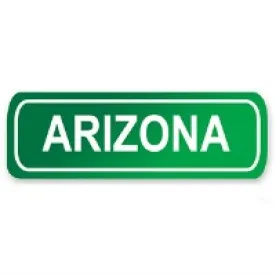A federal district court in Arizona held this week that courts are not required – or even authorized – to grant judicial approval of settlement agreements resolving individual claims brought under the Fair Labor Standards Act (FLSA), joining a growing number of courts calling into question the notion that private FLSA settlements require review and approval by either a court or the U.S. Department of Labor (DOL). Evans v. Centurion Managed Care of Ariz. LLC, 2023 U.S. Dist. LEXIS 139126 (D. Ariz. Aug. 9, 2023).
Background
Under Section 216(b) of the FLSA, an employee may bring a private lawsuit in an appropriate state or federal court, either on an individual or collective (class) basis, and may recover both actual and liquidated damages, as well as attorney’s fees and costs. Alternatively, under Section 216(c), “[t]he [DOL] is authorized to supervise the payment of the unpaid minimum wages or the unpaid overtime compensation owing to any employee or employees … and the agreement of any employee to accept such payment shall upon payment in full constitute a waiver by such employee of any right he may have under [Section 216(b)] of this section to such unpaid minimum wages or unpaid overtime compensation and an additional equal amount as liquidated damages.”
Following the holding of Lynn’s Food Stores, Inc. v. U.S., 679 F.2d 1350 (11th Cir. 1982), for more than 40 years the majority of federal courts, including some other courts of appeal, have concluded that FLSA claims may be settled only through approval by either the DOL or after a court of competent jurisdiction reviews and approves the settlement for fairness. See, e.g. Samake v. Thunder Lube, Inc., 24 F.4th 804 (2d Cir. 2022).
More recently, however, an increasing number of federal courts are questioning whether such judicial or DOL approval is required, or even allowed.
The Tide Appears To Be Turning
More recently, however, an increasing number of federal courts are questioning whether such judicial or DOL approval is required, or even allowed. The court in Martinez v. Bohls Bearing Equipment Co., 361 F. Supp. 2d 608 (W.D. Tex. 2005), was one of the first to hold that, because the case involved a bona fide dispute as to overtime pay due, court approval of the agreement was unnecessary. The Fifth Circuit subsequently adopted this rationale in Martin v. Spring Break ’83 Prods., LLC, 688 F.3d 247 (5th Cir. 2012), concluding that the private settlement agreement of an FLSA dispute was binding and enforceable without court approval, when “predicated on a bona fide dispute about time worked and not as a compromise of guaranteed FLSA substantive rights themselves.”
A significant number of district courts have since concurred that judicial or DOL approval is not required for bona fide disputes of individual FLSA claims. See, e.g. Walker v. Marathon Petroleum Corp., 2023 U.S. Dist. LEXIS 130671 (W.D. Pa. July 28, 2023); Jackson v. Dovenmuehle Mortg., Inc., 2023 U.S. Dist. LEXIS 113086 (E.D. Wisc. June 30, 2023); Martinez v. Back Bone Bullies Ltd., 2022 U.S. Dist. LEXIS 45870 (D. Col. Mar. 15, 2022); Alcantara v. Duran Landscaping, Inc., 2022 U.S. Dist. LEXIS 122552 (E.D. Pa. July 12, 2022); Saari v. Subzero Eng’g, 2021 U.S. Dist. LEXIS 179054 (D. Utah Sept. 17, 2021).
The Evans Decision
Evans is the most recent opinion to cast doubt on this judge-made requirement, explaining that “although the Court has previously engaged in the process of approving settlements in individual FLSA actions, it now joins the growing number of courts that have concluded that judicial approval is neither authorized nor necessary in this circumstance.” As the court observed, the text of the FLSA “strongly suggests” that Congress did not intend for a judicial approval requirement. Moreover, the court rejected policy reasons cited by some courts in favor of requiring settlement approval, finding, if anything, that policy considerations weigh against imposing a judicial hurdle to resolving an FLSA dispute. The requirement merely “slows the resolution of FLSA settlements and, by extension, the payment of wages to plaintiffs,” noted the court.
The Takeaway
Unless and until the U.S. Supreme Court weighs in, or the federal courts of appeal come to a consensus, judicial or DOL approval of individual FLSA settlements will remain a requirement in some jurisdictions. However, in some jurisdictions that is no longer the case and neither the parties nor the courts will have to undertake the time and expense of obtaining approval for settling such disputes. As the court in Evans noted, the case involved an individual settlement. The court did not hold that judicial approval was unauthorized with respect to class/collective action settlements, which still generally require court approval.






 />i
/>i

